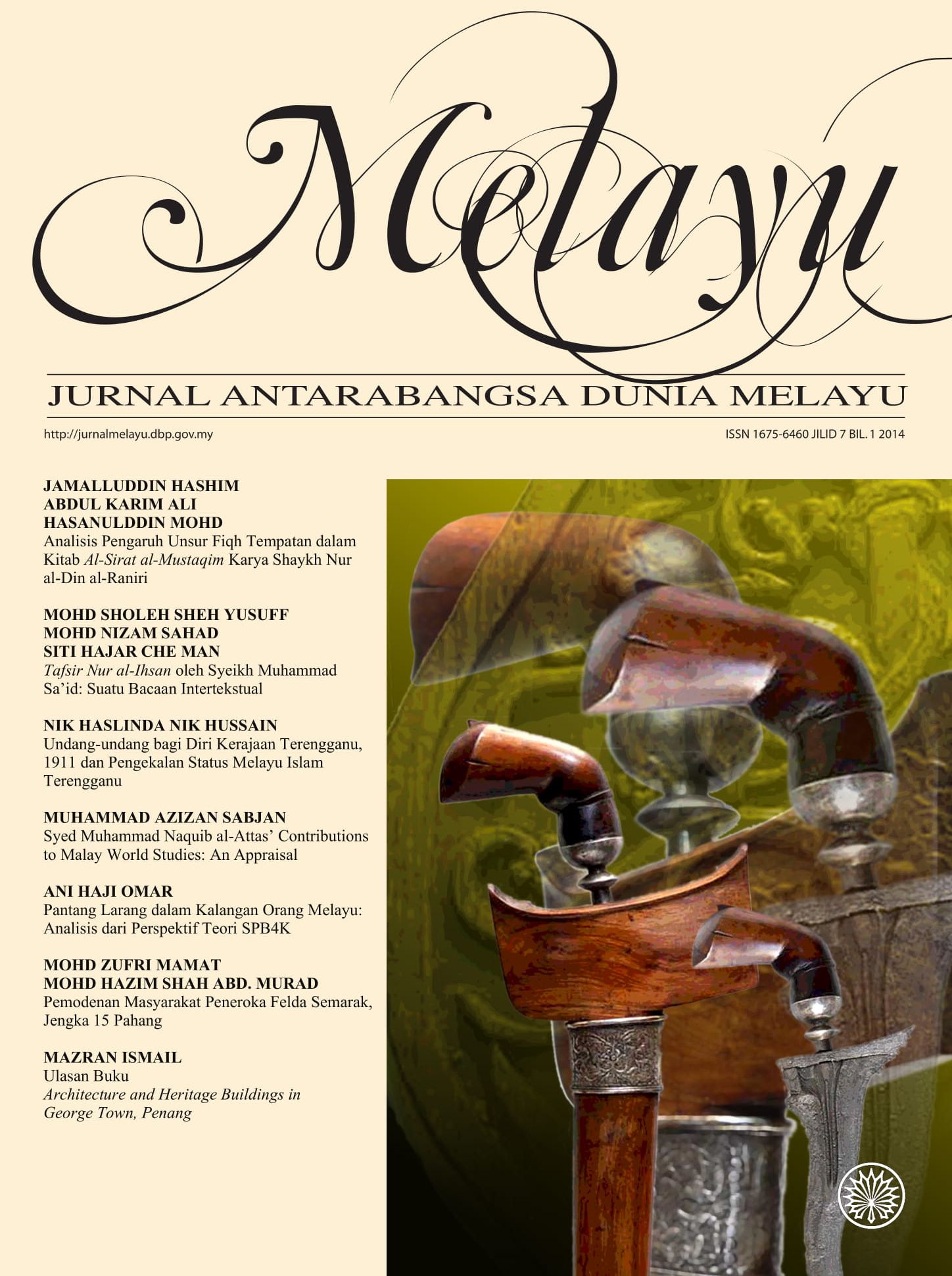The Modernization of the Settlers of Felda Semarak Jengka 15 in Pahang
(Pemodenan Masyarakat Peneroka Felda Semarak, Jengka 15 Pahang)
Abstract
In discussion, modernization is often associated with changes in value, and in the Western concept of modernization it is associated with the openness of the community to accept change in thinking and the willingness to liberalize traditional values. The discourse on Malay modernization is also not insulated from touching on issues of changing values. Some people feel that traditional values do not have a place in the community's development and modernization efforts, while on the other hand preservation of traditional values is seen as essential for cultural identity and authenticity-hence leading to a dilemma. Taking the model of the modernization of rural Malays by FELDA as a case study, this paper will discuss the issue of Malay modernization by presenting a perspective based on the concept of "multiple modernities" which proposes modernization as something that can take various forms. This idea is contrary to the theory of conventional modernization by Marx, Durkheim or Weber, which considers societal modernization as having to follow the same path of change and development as in Western society. We suggest that the modernization of Malay society has taken a different form compared to the West, since no society exists in a vacuum but has its own unique structure of social institutions, which needs to be respected.
Keywords: development, modernity, Malay modernization, values, attitudes, conventional modernization, multiple modernities
References
Alex Inkeles dan David H. Smith, 1974. Becoming Modern. Cambridge: Harvard University Press.
Christopher A. Furlow, "Malaysian Modernities: Cultural Politics and the Construction of Muslim Technoscientific Identities" dlm. Anthropological Quarterly, 82, hlm. 197-228, 2009.
David C. McClleland dan David G. Winter, 1969. Motivating Economic Achievement. New York: The Free Press.
Dilip Parameshar Gaonkar, 2001. "On Alternative Modernities" dlm. Dilip Parameshar Gaonkar (ed). Alternative Modernities. Durham, NC: Duke University Press, hlm. 1-23.
Everett M. Rogers, 1995. Diffusion of innovations. 4th edition. New York: The Free Press.
H. Mackay, Maples, W. dan Reynolds, P., 2001. Investigating the Information Society. London: Routledge.
Mohd Hazim Shah, "Historicising Rationality: The Transmission of Rationality and Science to the Malay States under British Rule" dlm. Asian Journal of Social Science, 35: 216-41, 2007.
Neil J Smelser, 2006. Social Change in the Industrial Revolution: An Application of Theory to the British Cotton Industry. London: Taylor & Francis Group.
Ragnhild Lund, 1994. Renegotiating Local Values: Working Women and Foreign Industry in Malaysia. Routledge.
Robert E. McGinn, 1991. Science, Technology and Society. New Jersey: Prentice- Hall, Inc. Merete Lie.
S.N Eisenstadt, "Multiple Modernities" dlm. Daedalus, Winter, 129(1): 1-29, 2000.
Steve Jones (ed.), 2003. Encyclopedia of New Media: an Essential Reference to Communication and Technology. New York: The Moschovitis Group.
Syed Hussein Alatas, 1972. Siapa yang Salah: Sekitar Revolusi Mental dan Peribadi Melayu. Singapura: Pustaka Nasional.
Tamio Hattori dan Tsuruyo Funatsu, 2003. "The Emergence of the Asian Middle Classes and Their Characteristic" dlm. The Developing Economies, XLI (2): 140-160, hlm.142.
Temu bual dengan Encik A. Hamid Bin Mohd Ali, Pengurus FELDA Semarak Jengka 15, Pahang pada 27 Mac 2009, jam 10 pagi di Pejabat FELDA Semarak Jengka 15 dan berdasarkan Manual Operasi Felda.
Tony Bilton. 1996. Introductory sociology. London: Macmillan.








